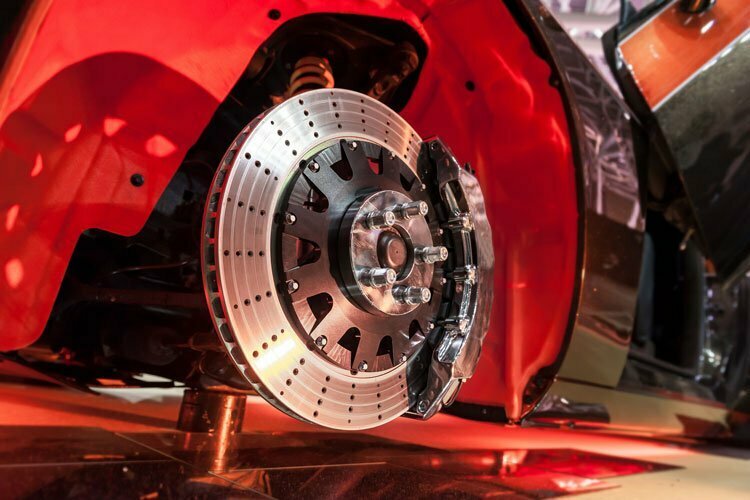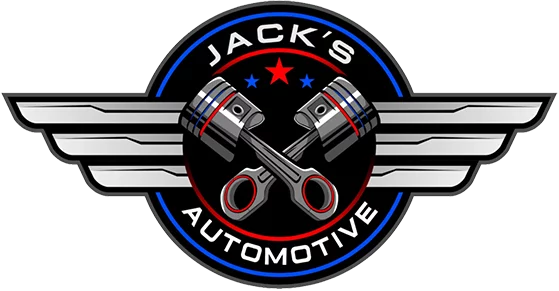How Do You Know if Rotors Are Bad?

Each day when driving your car or truck, you likely apply your brakes hundreds of times. A well-functioning braking system is essential for safe driving, but the more you drive and operate your brakes, the more wear and tear on your braking system. It’s important for drivers to keep this wear and tear in mind and ensure that their brake rotors, brake pads, and other elements of their brake system are well maintained. Over time, it becomes necessary to replace a bad brake pedal, front brake rotors, rear brake rotors, disc brake rotors, or other parts to ensure that the vehicle is safe to drive.
What Are Brake Rotors?
Brake rotors are basically circular discs connected to each of your vehicle’s wheels. So, there are two rotors in the front and two rear disc rotors. The rotors are essential for the part they play in braking the vehicle. Your braking system features your brake pedal, master brake cylinder, and rotors. When you press on the brake pedal to stop your car, it sends a signal to your car’s master brake cylinder which then signals the brake calipers (also part of the brake system) to depress your brake pads together against the rotors. This action between the pads and rotors slows the spin of the car wheels and, eventually, stops the vehicle from moving. If you have bad rotors, your braking system–and ability to stop your car or truck–may be compromised.
The following are signs that your vehicle’s brake rotors are bad and may need to be replaced.
Vibration in Steering Wheel
If you feel your steering wheel vibrate when you’re stepping on the brake pedal and trying to slow your vehicle, it may be a sign that you have warped brake rotors or bent rotors. Bad brake rotors occur from simple wear and tear. For instance, the heat that is created when the brake pads squeeze the rotors can cause them to warp and bend over time. As this happens, contact with the brake rotor and brake pads is reduced, which is a serious driving hazard.
Pulsating Brake Pedal
If you experience a pulsating brake pedal, it’s likely that your brake rotors need to be replaced. They may be completely worn out or could be warped or bent. Severely worn rotors should not be driven on. Even if your brake rotors have only slight uneven surfaces because of heat friction wear and tear, you should ask your mechanic if it’s time to replace them.
Periodic Brake Noises
If you begin to hear periodic brake noises that become persistent, you might suspect bad brake rotors, as many drivers do, but that’s not always the case. Sometimes these noises occur because the vehicle has been kept outside overnight; the moisture accumulation can cause the rotors to make sounds. However, if you hear a squealing noise, you may need new brake pads. Worn-out brake pads can make a squealing or squeaking sound. In any case, you should have your braking system checked over.
Grinding Sound
If you press your brakes and hear a grinding sound, it could suggest that a pebble or other debris is caught inside of your brakes. On the other hand, it can also be a sign that you need rotor replacement. The grinding noise means that the rotors have worn down to their metal. Have your mechanic or brake shop inspect your brakes to ensure every rotor is a healthy brake rotor. It’s also a good idea to have brake pads replaced if they’re showing signs of excessive wear and tear.
Screeching after Getting New Brake Pads
If you’ve recently had new brake pads installed on your vehicle and hear a screeching sound, you may have a brake rotor issue. Screeching isn’t normal. It often suggests that the edges of the rotors have been burnt because of excessive heat produced by friction. Sometimes this sound goes away after driving as the brake pads wear in, but if it doesn’t, you may be in need of a brake rotor replacement.
Rotors are Out of Rounds
While noises often indicate that you have a bad brake rotor or need new brake pads, sometimes a simple visual inspection of a brake rotor suggests a problem. A thinning of the brake rotor’s surface suggests that it is suffering from wear and tear. You should have a professional mechanic or brake shop inspect any blue rotors (the surface may have a blue tinge) or lip around the surface of the rotor.
Grooves in Brake Rotors
If your brake rotors have grooves or are scored, they won’t have good contact with the brake pads. Consequently, the brake rotors need to be replaced. This reduced brake efficiency makes it dangerous for you to drive your vehicle until the brake rotors are replaced. Don’t assume that grooves in your rotors or score marks are a minor problem. Have a brake shop investigate your braking system.
Cracked Brake Rotors
If your brake rotors are deeply cracked, they will need to be replaced. Badly cracked rotors are bad brake rotors. Deep cracks can indicate that the rotor could break in half. They are a sure sign that you need rotor replacement.
Bad Brake Rotor FAQs
What do bad brake rotors sound like?
Worn rotors can make a grinding sound. If you hear a grinding sound when you press your disc brakes, have each brake rotor checked out.
What happens when rotors go bad?
When a brake rotor goes bad, it compromises the safety of your vehicle. A bad brake rotor undermines your entire brake system. Bad rotors require replacement. Brake pads will not be able to stop your vehicle alone without well-working brake rotors.
